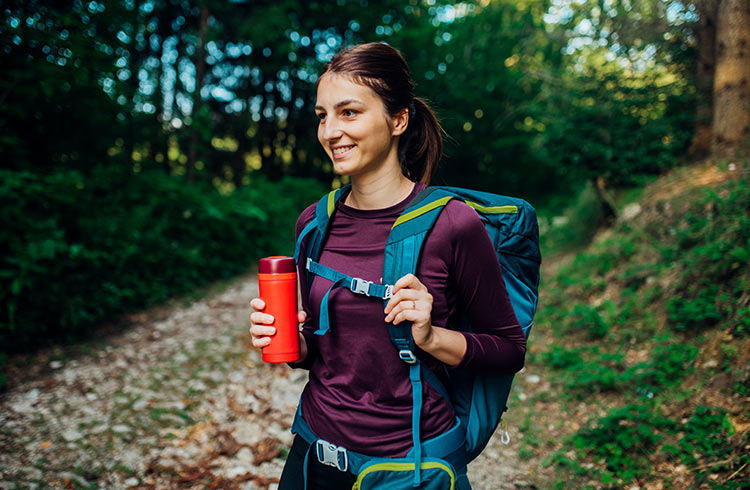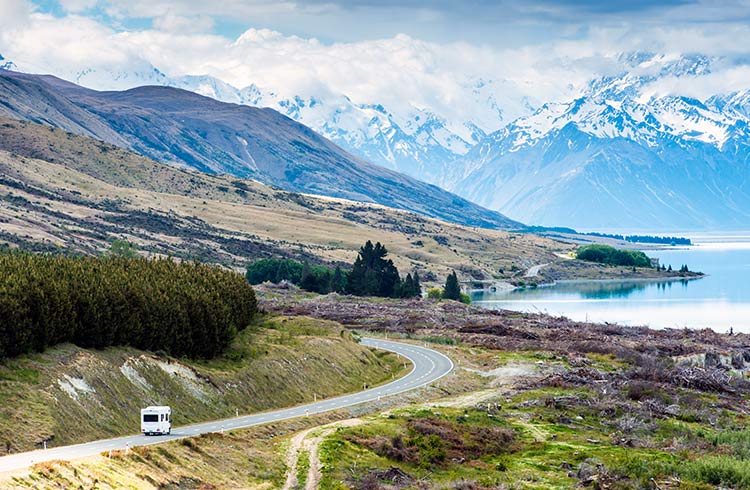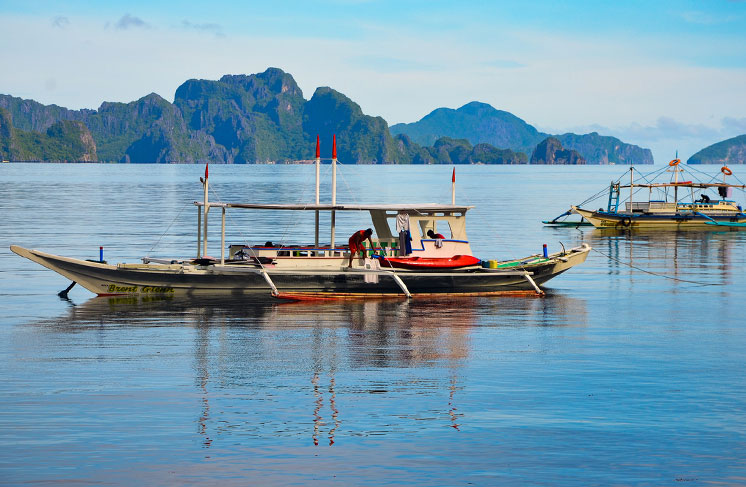How To Reduce Your Carbon Footprint When You Pack Your Bags
These simple suitcase additions will help you maintain your eco-friendly habits on the road.
 Photo © Getty Images / RgStudio
Photo © Getty Images / RgStudio
Even the most eco-conscious among us can find it hard to maintain our green habits when we hit the road. These must-pack items will keep you on the right track, and help you pack lighter.
Eco-friendly essentials
Filtering water bottle
Avoid contributing to the estimated one million plastic bottles bought around the world every minute by packing a refillable water bottle, preferably one that's stainless steel and/or BPA-free. You'll often find filtered water taps at hotels and airports for on-the-go refills, and if you're traveling to a place where there might not be access to clean water, Grayl’s range of purifying water bottles remove bacteria, viruses, parasites and microplastics on the go.
Plastic-free cutlery and straws
Traveling and takeaway food go hand-in-hand, with plastic cutlery being one of the biggest examples of single-use plastic. Enjoy street eats responsibly by packing a set of utensils made from a biodegradable material such as bamboo or beechwood. Straws are also one of the worst environmental offenders – used for a mere few minutes, they take hundreds of years to break down – so have a reusable stainless-steel option on hand.
Reusable coffee cup
If you're a coffee drinker, it's likely you already own a KeepCup or similar reusable cup that you take to your local barista. This is an important habit to uphold when you travel, with more than 500 billion coffee cups disposed of each year. Some cafes offer a discount to customers who bring their own cup, saving you precious travel dollars.
Solar charger and light
Harness the energy of the sun while you explore the outdoors – a solar-powered charger comes in handy on nature-based adventures where there are no power outlets, or to give your phone a quick top-up throughout the day. If you plan to camp, a solar-powered light in a collapsible design will make an ideal travel companion.
Reusable food containers and snack bags
Stainless steel jars with leakproof lids are great for portable meals and storing leftovers, plus they're virtually indestructible. Take a couple when you head out to eat and ask vendors to fill them up instead of using their disposable, non-reusable containers. Additionally, swap zip-lock bags for a reusable silicone food pouch that is just as good at keeping your snacks fresh.
Eco-friendly toiletries
The benefits of a few simple swaps to your personal care routine can really add up. From sunscreen to shampoo, do your research and know which ingredients to avoid instead of buying products just because they are labeled 'eco-friendly' or 'natural'. Check that products don’t contain toxic chemicals and are packaged in biodegradable materials wherever possible.
Reusable shopping bags
There is no excuse to accept a plastic bag, especially when it's estimated one trillion of them are used and discarded worldwide each year. A humble reusable tote is easily foldable, takes up very little space and will prove invaluable, whether it's for grocery shopping, a trip to the beach or to use for laundry. Pack a sturdy canvas carryall as well as a mesh produce bag for fruit and veggies.
Portable washing bag and laundry bar
Washing machines use a lot of water and energy, and coin laundries are not always easy to come by. A good option is a Scrubba wash bag, a tiny, portable 'washing machine' that keeps your clothes fresh and clean. Don't forget to throw in a plant-based laundry bar, powder or detergent and a travel clothesline.
Why it pays to pack lightly
Taking a minimalist approach to packing not only makes you feel more organized and mobile, it can also reduce your greenhouse gas emissions. “If every Finnair passenger takes one kilogram less of luggage,” says Arnaud Michelin of Finnair, “we can save one to two million kilograms of fuel in a year; enough to fuel 20 flights between Helsinki and Tokyo.” Here are some tips to lighten your load and your eco-footprint.
Choose the right bag
An easy way to avoid overpacking is to use a smaller bag or suitcase – you won't be tempted to throw in all of those what-if items as you'll only have room for the essentials.
Keep clothes neutral
Limit yourself to simple pieces that can be thrown together effortlessly and mix and matched. Stick to classic colors such as black, gray and navy, which also do a good job of looking cleaner for longer!
Pack multifunctional pieces
Jackets with zip-off sleeves, liners and hoods can adapt to all weather conditions. A Turkish towel doubles as a sarong or blanket, while a food storage container can be used as a cup or bowl. A buff is perhaps the ultimate multi-tasker, acting as a face mask, headwear, scarf, or scrunchie as required.
Downsize your toiletries
Decant hair and body products into small, reusable bottles before you leave home, and look for double-duty products – a shampoo bar can be used as a body wash, while coconut oil is a great all-rounder for skin, hair and removing makeup.
Borrow what you can
Avoid packing anything that will only be used a few times, such as a hairdryer, yoga mat or hiking boots. Many of these items can be rented or borrowed from friends or fellow travelers.
Related articles
Simple and flexible travel insurance
You can buy at home or while traveling, and claim online from anywhere in the world. With 150+ adventure activities covered and 24/7 emergency assistance.
Get a quote


1 Comment
Particularly when visiting developing countries, I take clothing that's still in good shape, but maybe I'm just pretty much done with, and then find somewhere to donate them. For my last trip to Turkey, I took 2 pair of shoes I didn't really need and a raincoat that I'd already replaced and left them for Syrian refugees, then had room for a cool pair of souvenir sandals and some other good stuff on the way home.